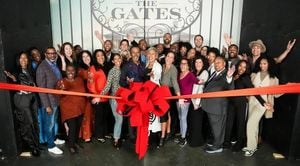Home ownership, once viewed as the epitome of the American Dream, has rapidly become a source of anxiety and financial strain for many across the United States. According to reports, rising housing costs and increasing property-related expenses are transforming homes from valuable assets to significant financial burdens for their owners.
Meg, 60, from Maryland, exemplifies this shift. "I bought my home in a hurry in 2020," she recalls. "It was less expensive to take on a mortgage than to keep paying ever-increasing rents for my college-student daughter and me." Now, her housing costs consume 50% of her income, and she finds herself struggling under the weight of home repairs and rising insurance premiums. "I had to take out an additional mortgage to replace the heat and AC system," Meg explains, indicating the uphill battle many face just to maintain their homes.
These sentiments resonate with many homeowners across the country. Heightened mortgage rates, skyrocketing home insurance premiums, and ever-increasing property taxes are making it difficult for individuals to sustain their ownership status. The Guardian reported numerous stories of homeowners genuinely feeling trapped by their circumstances. Homeowners are finding no solace even amid seemingly stable employment, with many families experiencing more than half of their income being consumed by housing alone.
Bernie, 45, from Minneapolis, echoes Meg's frustrations. Despite having a pre-tax household income exceeding $250,000, he notes, "I’ve come to view home ownership and healthcare as destabilizing forces in my life." Cycles of borrowing and rearranging finances to stay afloat are starting to erode the stability home ownership once promised.
For others, like Amie, 44, from rural Maine, even initially good financial decisions are proving to be misguided. "Although my mortgage is reasonable, the price for anything else is causing considerable financial stress for my partner and me," she states. With property taxes on the rise and energy costs skyrocketing, Amie's dream home quickly morphed from blissful ownership to overwhelming obligation. To deal with the financial strains related to her $260,000 home, she now faces the harsh reality of potentially going back to renting, which seems equally untenable due to exorbitant rents proliferated across the nation.
Reports indicate overall trends showing those once highly invested are now shifting their perspectives. Angela, 60, from the Chicago suburbs, shares her concerns about the surging property taxes exceeding her ability to pay. Purchased for $220,000 nearly two decades ago, Angela fears the $8,800 she owes annually may soon hit untenable levels. "I’m thinking – how do I afford these taxes in retirement?" she ponders. The reality of maintaining ownership has shifted dramatically from long-term investment to immediate financial crisis management for many, and the trend is stark.
Indeed, Jane, 69, finds herself caught within this precarious web of finances. Living with the increased burden of fire insurance rates rocketing from $3,200 to nearly $8,000 annually due to the wildfire risk of her home, she laments, "I just did not expect costs to go up like this during my retirement." With limited income strictly defined by social security payments, many retirees like Jane face impossible decisions about their homes.
Many homeowners are no longer seeing their property as stable investments but rather as "money pits" requiring endless upkeep, taxes, and insurance fees. Experiencing the full brunt of the changing economic conditions, Connie Jones, 63, was forced to take out loans after significant tornado damage, raising questions about her ability to maintain the home she has known for years.
Home maintenance costs, as reported by multiple families, can often swing dramatically, especially for older homes. Many owners express fears about possible job losses or economic downturns exacerbated by increasing expenses related to home ownership. With utilities and maintenance costs rising, Morgan, 36, from Philadelphia says, "My insurance just increased by about $150 per month… I’ve had to prioritize discretionary expenses." Morgan’s plight showcases how even those with secure jobs are witnessing the financial constraints imposed by home ownership.
Recent shifts indicate potential increases in home sales as individuals weigh their options, weighing the cost of moving against rising living costs. Many express grievances toward the perception of homeownership, now viewed through lenses of uncertainty rather than security. Patricia, 70, from Massachusetts, said, "I was mortgage-free from 1985 until 2025, but I've recently had to take out new loans due to maintenance costs. I’m unsure I will downsize due to my location's properties being beyond reach."
Today’s economic climate is fostering trends toward rentals and manufactured homes, as homeowners seek refuge from the burdens of traditional ownership. Stephanie, 49, who moved from Massachusetts to Colorado, found success transitioning to more affordable options after selling her previous home, stating, "I don’t believe it’s feasible for me to own again."
The broader picture looks stark, as more people come to terms with how ownership can bring significant financial distress. With soaring insurance costs becoming commonplace and regular ownership-related fees climbing, many homeowners are left grappling with unexpected realities.
This collective struggle reveals significant changes in America's housing narrative steeped with uncertain economic futures. Even as their homes gain value, the cost of maintaining them threatens to strip away the very stability ownership once promised. With anxiety over rising costs rippling through communities, it is imperative to understand the changing principles of home ownership as families navigate these unprecedented financial waters.



